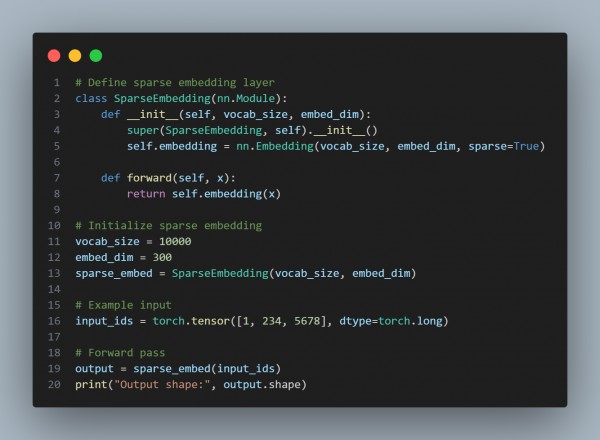The embedding sparsity significantly impacts memory and efficiency in large generative models in the following ways:
- Memory Efficiency: Sparse embeddings reduce memory usage by storing fewer non-zero values.
- Computational Efficiency: Sparse operations (e.g., matrix multiplications) reduce the number of computations, speeding up training and inference.
- Regularization: Sparsity acts as a form of regularization, potentially improving generalization.
Here is the code you can refer to:

In the above code, we are using Memory to sparse embeddings to save memory by storing only significant weights; efficiency to parse operations improves speed, especially for large vocabularies, and Use Cases are Useful in large-scale models like transformers to optimize resource usage.
Hence, these are the impacts of embedding sparsity on memory and efficiency in large generative models.
 REGISTER FOR FREE WEBINAR
X
REGISTER FOR FREE WEBINAR
X
 Thank you for registering
Join Edureka Meetup community for 100+ Free Webinars each month
JOIN MEETUP GROUP
Thank you for registering
Join Edureka Meetup community for 100+ Free Webinars each month
JOIN MEETUP GROUP